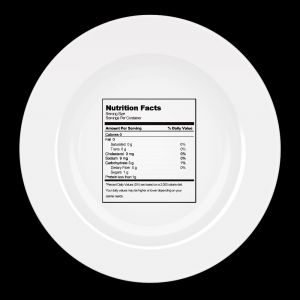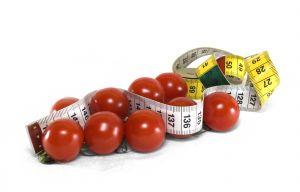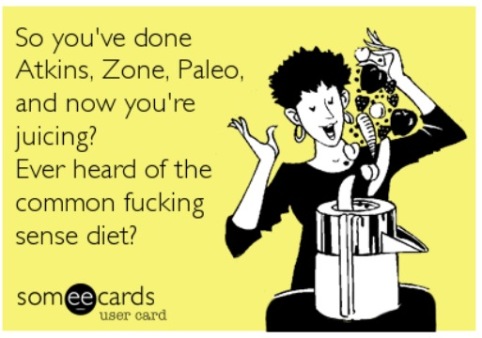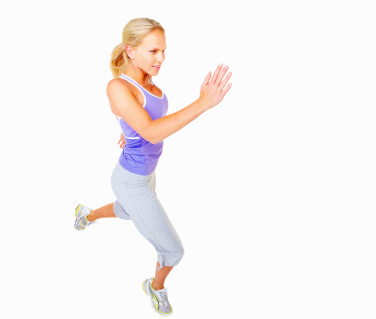Running and Weight Loss - What You Need to Know and Do to Start Shedding Some Pounds!
There are dozens of advertisements on TV, radio and in magazines.
They all tell you how a certain pill, powder or fad diet can help you lose weight with very little effort.
There are also ads that try to sell you expensive and revolutionary workout equipment (that looks cool).
Somehow, buying the equipment will make you lose weight quickly.
Must be the lighter wallet.
Now, when we are going to start talking about losing weight, we may as well be clear to each other.
 I don't think
losing weight is easy.
I don't think
losing weight is easy. It requires discipline and a change of behaviors.
You are most likely here because you want to lose weight.
And you want to learn how running can help you.
I'll help you work it out.
I'll also provide you with some links to other pages on my site.
Make sure to check those out as well.
Running and Weight Loss - About Energy In and Out
What you need to know is that when you eat you take in energy. The more you eat the more energy you take in.
When you go about your daily activities you burn energy. When you run, or do other exercise, even walking, you burn more energy.

At the end of the day, when you burn more energy than you take in, you will lose weight.
So, less eating helps.
More exercise helps.
Forget all the stupid advice you have heard and articles you have read about early morning exercise, late night exercise, times of the day you should or shouldn't eat, etc.
In the end it simply comes down to how much you eat and how much energy you burn.
Running and Weight Loss - It's Simple, But Not Easy
So, really, it is very straightforward. You need to eat less and exercise more.
Simple, right.
Not easy.
The reason it is not easy is that it does require a change of behaviors. Where are you going to find the time to exercise? Where are you going to find the right advice about what to eat and how much to eat?
I'll provide you with some ideas.
Running and Weight Loss - Diet, Healthy Eating and Portion Control
Regarding portion control: there is nothing really as effective as logging the foods you eat and the exercise you do. My wife and I have had good success with MyFitnessPal.com. It's a website/app which lets you log everything you eat and drink.
In the beginning it's a little bit time-consuming, but you'll soon find that you actually mostly use the same foods over and over again which come back in your list of 'frequently used foods'.
My wife started using it and she felt bad the first few days because she was eating too much. To make her feel better I decided to log on as well and enter my food intake. I was shocked!
I eat pretty healthily. But I basically ate way too much of everything. In weeks I didn't have a lot of time for running, I'd gain some weight, in 'normal' weeks, I'd lose some weight. I did not have a weight problem, but at the time, I was surprised nonetheless that I wasn't really losing weight despite the amount of running I was doing.
After starting to log my food-intake I understood why!!!

It was an eye-opening experience and well worth a try. After doing it for five-six weeks you start to know what your intake is, when you are going over or not.
Also have a look at the runner's diet page for some more information about healthy eating.

Running and Weight Loss - The Running Part
One of the great things about the MyFitnessPal experience was that we realized pretty quickly that keeping to a lower-calorie diet was actually really hard.
And I mean, really hard. You need to be so careful about your portion sizes. You need to be so disciplined.
However, when like me, you are a long-distance runner, you can push up your calorie-intake quite a lot. On my long run days (when I run 20-35k) I can basically eat all I'd want and more and be comfortably under my goal for the day.
You can lose weight, in the short-term, without any exercise whatsoever.
However, in the long-term, I think you will find it is much more sustainable to do exercise as well. That way, you'll be allowed to occassionnally indulge in treats. You can eat decently, without starving yourself, occassionally be a bit naughty and still accomplish your goals.
It's a much more balanced approach to achieving a healthier weight and lifestyle.
Now, why should you choose running over other types of exercise?
Well, maybe you should check out my benefits of running-page. On that page I am listing a number of reasons why you should run. Weight loss is only one of them.
Running is cheap, requires little investment upfront and you get a really good return on the time you invest, i.e. your energy use is quite high when you run, so you can accomplish a lot in a short time.
Running is the most natural thing you can do for your body, provided you do it safely. When you start to run and you are really untrained, I'd always advise you to use a run/walk running program.
Again, don't worry about all the stuff you have read before about high-intensity vs low-intensity exercise, how long you need to run for and all the other facts, myths and bs.
Just, make sure you get out of the door. That's all, just do it. Insert swoosh-sign here... :)
A few useful links:
 |
 |
Running and Weight Loss - How Much Do You Run
So, how much do you have to run to lose weight? Probably one of the most asked questions about weight loss and running. The answer: it depends... :)
Yes, it does. As indicated before, it depends on how much you eat. With a tool like MyFitnessPal.com you can get an indication of a calorie goal per day.
Just to give you an indication, I'll include some possible scenarios that will help you lose approximately one pound per week.
Losing a pound per week requires that you burn about 3,500 calories per week (500 / day) extra than you take in.
Suppose that to stay at the weight you are now you need to eat about 2,000 calories per day. And to lose 1 pound per week you need to create, on average, a deficit of 500 calories / day or 3,500 calories / week.
Scenario 1.
You eat, on average, 1,500 calories per day. Then you don't need to run at all. You are already eating 500 calories less per day, so you'll lose, roughly, one pound per week.
However, again, you have to ask yourself whether that is sustainable. Reducing your calorie intake too much is not a healthy approach to life.
Scenario 2.
You eat, on average, 1,750 calories per day. That's 250 calories per day already taken care of, or 1,750 of weekly calories. Now, what do you need to do to lose the remaining 1,750 calories in that week?
You can work out with the Calories Burned Calculator that if you weigh 70 kg, you'd need to run approximately 24 km in a week (15 miles) to burn 1,750 calories.
That sounds like a lot, but if you do four running sessions of six km (3.8 miles) that is actually not too bad. With a bit of dedication you can, even from a base of no running, build up to that kind of mileage in a matter of weeks or months, depending on your fitness levels.
And if you throw in a bit of other types of exercise like bike riding or rowing which all burn calories, then you wouldn't even have to run those 24 weekly kilometres. I consider this a very doable scenario for virtually everyone!
Scenario 3.
You eat, on average 2,250 calories per day. Without any running you'd gain weight! In order to stay at this weight you'll need to burn 250 x 7 = 1,750 calories per week.
So, using your weight of 70 kg you'll have to run 24k per week just to stay at your current weight!
And if you want to lose one pound per week you'll have to burn 1,750 + 3,500 = 5,250 calories / week. That's no less than 72 km / week (45 miles per week). A lot less doable, unless you are reasonably well trained!
So, even if the maths above was a bit difficult to follow, I hope the bottomline is clear: in order to achieve weight loss, it is not only running, but also your diet that plays a major role!
Running and Weight Loss - Additional Reasons Why You Need to Run
Now, reading through the examples above you may have concluded that you don't have to run at all. You might prefer scenario 1, i.e. "just" eat 500 calories less than the recommended intake and lose the weight without breaking a sweat.
Two reasons why you'll have difficulties:
1) Deprivation is hard. It is simply not easy to deprive yourself, day in, day out, of 500 calories. Your body will be screaming for you to drop your guard. After a while, it's likely you'll succumb to the pressure.
2) Your body reacts to deprivation by slowing your metabolism. Over time, your body gets used to getting less food. It reacts by slowing down how quickly it burns the food it gets. After an initial period in which you do experience weight loss, you are likely to reach a plateau. At this point, you will not lose weight anymore as your body is used to dealing with getting less food.
These are the main reasons diets fail. It is hard to maintain. And even if you are able to maintain it, at some point the diet is not going to have much effect anymore!
So, you'd better start running!
Running and Weight Loss - Conclusions
That's really all there is to it. When you start running, run three or four times a week and combine it with a healthy diet and portion control. There is nothing then to stop you from losing weight.
What you should know though is that when you run to lose calories it is not so much about how fast you go, but about the distance you cover.
So, running one mile fast or slow is not going to make a huge difference in the amount of calories you burn. There is proof that when you run fast, you'll keep on burning more calories for longer afterwards due to your elevated heart rate.
However, if you run fast, you might not be able to go much further than that one mile! Run slower, and you might take longer, but you could continue on after that one mile and keep on burning more and more calories.
There are more benefits to running at a slower pace. I cover these in my running for fitness article (see link at bottom of this page) which deals with the differences between running for fitness and running for health.
Interested in more weight loss advice? Then also check out my running
for weight loss page which also features a few sample running schedules.
Running and weight loss are tied closely together.
It is a true wonder that people even attempt using other methods of weight loss.
The answer is so simple!
Again, it's simple. Not easy... :)
Good luck on your weight loss journey.
Home > Beginner Running Tips > Running and Weight Loss
What's New?
-
In the Army - Improving my 2 Mile Time
I am a 36 year old male who just joined the army. I have not run any long distance so I tried on my own to train and was doing ok but my times are still -
Marathon Diet - Improve Nutrition to do Better at the Marathon
I have got a question about my marathon diet. I have been an athlete all my life; mostly a runner, but cycle long distances sometimes. I am training -
Beginners Running Program 3 - Go from 0 to 30 Minutes of Running in 12 Weeks
The third beginners running program of Best Running Tips might be the best one. It is definitely the most popular. Get from couch to 30 minutes of solid running in only 12 weeks! -
Calories Burned Calculator - Calculate the Calories Burned While Running with This Calculator
This calories burned calculator calculates the calories burned while running, based on your weight and the distance you ran. -
Asthmatic Non-Runner With a Need to Run - 1.5 Miles in 13 Minutes
Truth be told I am NOT a runner. I can walk a 14 minute mile all day. But running, not me. I have had asthma since I was a child - severe through all -
Second Half Marathon in a Month - Should I Run It or Not?
Hi, I ran a half marathon a month ago, but have not done any great distances since, 6 miles max. I'm thinking of doing a half marathon this Sunday -
Running a 5k - Can I Be Faster at 30 Than I Was at 18?
I started running at 13 in high school. I ran cross-country, indoor and outdoor track. My track coach was very informed and my PRs were 800 - 2:22, -
Faster Minute Mile for 5K races
I'm 40 years old and I started to run consistently four months ego. My running pace went from 9 minutes miles to 7:30 minute miles in a 5k. Is it realistic -
I Need a Good Marathon Running Program
I am devastated. I ran my second marathon last weekend. I ran a marathon six months ago as well, but at about the 19-20 mile mark my legs cramped up... -
Is 20 to 30 Training Miles Enough to Run a Half Marathon
I have been a committed runner for a year and a half now and have completed two half marathons with over a dozen 10k races! I have been keeping running



